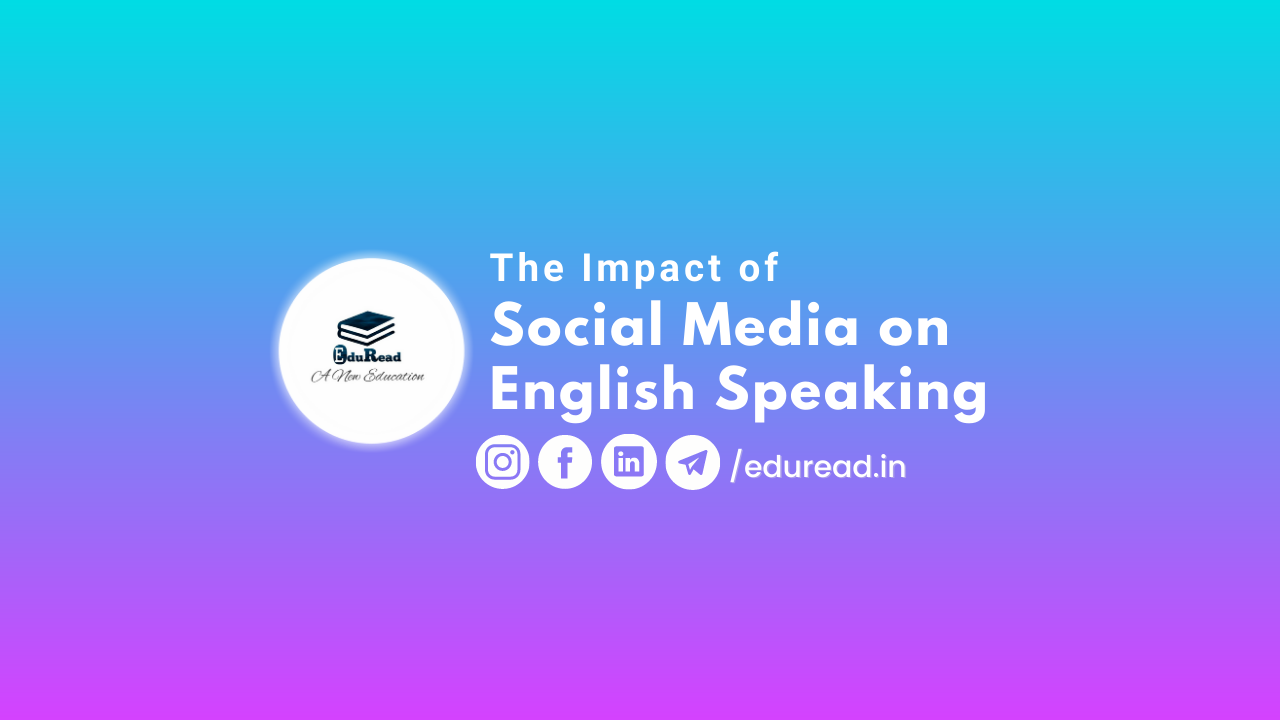Social media has revolutionized the way we communicate and interact with each other. It has become an integral part of our daily lives, and it is difficult to imagine a world without it. With the advent of social media, the English language has also undergone significant changes. In this blog, we will discuss the impact of social media on English speaking.
Social media has made communication more accessible and convenient than ever before. People can now communicate with each other in real-time, irrespective of their location. This has led to the emergence of new ways of expressing ideas and opinions. Social media has given rise to a new form of language, which is often referred to as “Internet language” or “text-speak.”
One of the significant impacts of social media on English speaking is the use of abbreviations and acronyms.
In the past, abbreviations and acronyms were primarily used in the business world. However, social media has made them a common part of everyday communication. Abbreviations such as LOL (laugh out loud), OMG (oh my god), and BRB (be right back) are now widely used in informal communication.
Social media has also given rise to the use of emojis and emoticons. Emojis are graphical representations of emotions, while emoticons are typographic representations of emotions. Emojis and emoticons have become an essential part of communication on social media platforms. They can convey a wide range of emotions and expressions, and they have become an effective way to add context to a message.
Another impact of social media on English speaking is the use of hashtags.
Hashtags are a way to categorize content on social media platforms. They allow users to find content related to a specific topic or theme. Hashtags have become a popular way to express opinions and ideas on social media. They are often used to initiate or participate in conversations on specific topics.
The use of social media has also affected the way people write. With the rise of social media platforms such as Twitter, where users are limited to 280 characters per tweet, people have become accustomed to writing short, concise messages. This has led to the emergence of a new form of writing known as “microblogging.” Microblogging is the act of writing short, concise messages that convey a specific message or idea.
Social media has also affected the way people spell and use grammar. The use of text-speak and emojis has led to the development of new words and phrases, and the use of hashtags has led to the creation of new grammatical structures. Social media has also made people more aware of their spelling and grammar, as mistakes can be quickly pointed out and corrected.
However, social media has not only had a positive impact on English speaking. The informal nature of social media communication has led to the normalization of poor grammar and spelling. Many people now use informal language in formal settings, such as in emails or job applications. This can have a negative impact on their professional image.
Conclusion
In conclusion, social media has had a significant impact on English speaking. It has given rise to new forms of language, such as abbreviations, acronyms, emojis, emoticons, and hashtags. It has also affected the way people write, spell, and use grammar. While social media has made communication more accessible and convenient, it has also led to the normalization of poor grammar and spelling. It is essential to strike a balance between informal communication on social media and formal communication in professional settings.
Follow Us for more such content to improve your speaking skills:
Check out this blog to overcome the Public Speaking Fear: https://eduread.in/removing-public-speaking-fear-techniques-for-confidence-speak-new-york/
And visit us for more
